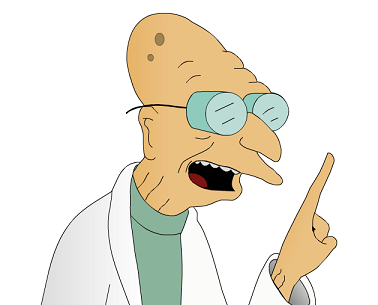Tecdavid: Certainly "mundane" sf would tend to fit that description, as one of its precepts is to use only that which we understand to be established now as the basis for its speculations; hence even a lot of traditional sf tropes (time-travel, the variety of alien species, etc.) are seldom allowed there.
But sf itself is immensely broad and has often had a very close affinity with fantasy (Heinlein's Glory Road, Leiber's "Ship of Shadows", much of the work of the 1940s through the 1960s, the bulk of Moorcock's sf), so fantasy readers be more comfortable with some of this than they think.
I, too, would highly recommend Flowers for Algernon -- yes, it has the technology, but it is never made much of a point of. The entire focus of the book is on the human story of Charlie Gordon. It is also just a damn fine book, period. (And, for my money, the short story is even better in some ways!) I would also recommend "The Ugly Little Boy", "Eyes Do More Than See", "Dreaming is a Private Thing", "The Lost Past", and a host of other stories by Isaac Asimov; Tom Godwin's "The Cold Equations" (which has got to be one of the most heart-wrenching stories out there in its basic situation), 'Mimsey Were the Borogoves", "The Children's Hour", and "Vintage Season" by Henry Kuttner and C. L. Moore; a lot of Theodore Sturgeon, perhaps especially "The [Widget], the [Wadget], and Boff", both the science fiction and fantasy of Harlan Ellison; Dune, by Frank Herbert; The Demolished Man and The Stars My Destination (a.k.a. Tiger, Tiger) by Alfred Bester; the bulk of Ray Bradbury's work; John Brunner's "ecological dystopian" trilogy, Stand on Zanzibar, The Jagged Orbit, and The Sheep Look Up; "Waldo", by Robert A. Heinlein; A Canticle for Leibowitz, by Walter M. Miller, Jr.; A Case of Conscience, by James Blish; Edgar Pangborn's A Mirror for Observers, Davy, or "Angel's Egg"; any number of things by J. G. Ballard (perhaps, particularly, the trilogy The Drowned World, The Drought, and The Crystal World, or the later trilogy -- though this one is particularly grim -- Crash, Concrete Island, and High Rise, or his more hopeful The Unlimited Dream Company;... or just picking up a number of anthologies, such as Damon Knight's A Science Fiction Argosy; Anthony Boucher's A Treasury of Great Science Fiction; The Science Fiction Hall of Fame, vol. 1 (ed. by Robert Silverberg) and vols. IIA and IIB (ed. by Ben Bova); The Golden Age of Science Fiction, ed. by Groff Conklin; or even the volumes of The Hugo Winners, beginning with vol. 1.
I think that, if you try a few of these, you'll find that sf is at least as broad as fantasy, if not more so; for fantasy has tended, for some time now, to be caught in a certain set of tropes (though that is gradually changing), whereas with sf (if one goes with the entire history of the genre), there is no limit save the writer's imagination....



